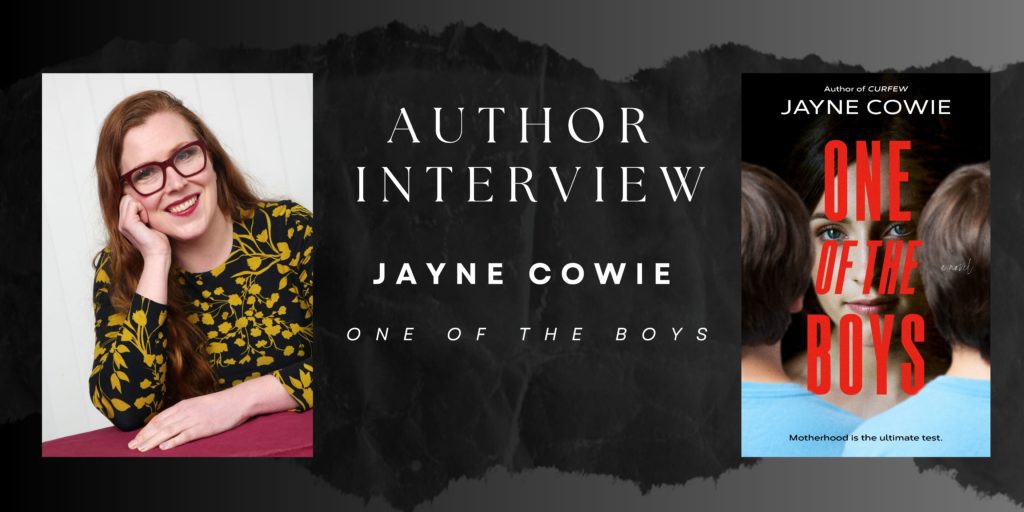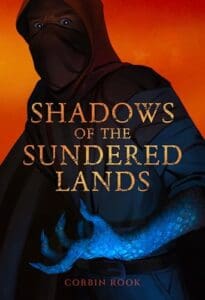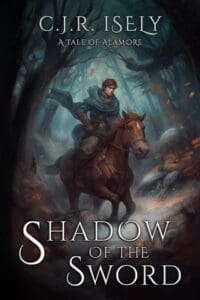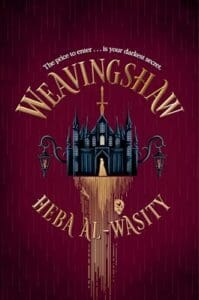
Hello! I’m here today with Jayne Cowie, author of the dystopian thriller titled ONE OF THE BOYS, out now via Berkley Publishing. I read, reviewed, and really enjoyed this book, which is quite unlike anything else I’ve read this year.
Hi Jayne, my name is Cassidee and I am so excited to read One of the Boys. Thanks so much for taking the time out of your schedule to do a little Q&A with me for FanFiAddict!
JC: Hi Cassidee, thanks for having me!
FFA: Did you always know you wanted to be a writer and when did you first try to publish one of your works? Was it successful or was it one of your later works that got the attention of a publisher?
JC: I had an idea that I wanted to be a writer when I was very young, so probably 9 or 10, and even had a go at writing a novel in my teens, but that attempt didn’t get past the first chapter. Life then got in the way for a few years, and I didn’t think any more about it until I’d had my second child and found myself desperately in need of a creative outlet, preferably something I could do at home that wouldn’t cost any money. I’d read somewhere that Nora Roberts had written her first novel in a similar situation, so I decided to have a try, just to see if I could do it. I didn’t have any thoughts about trying to get published at that stage, which is probably just as well, because I had absolutely no idea what I was doing and the book was predictably terrible. I’m not sure you could even say it was a story. It was just a lot of words. But I finished it. And then I wrote another, and another. I started to read books about how to write, entered some writing competitions and went on a few writing courses as well. I sold several books to various digital first publishers (so ebook only) before I got an agent. ONE OF THE BOYS is my fifth traditionally published novel. I’m not one of those people who wrote their first book in three months and sold it straight away. I have written a LOT of unpublished stuff. But I’m OK with that. A career as a novelist requires stamina and patience and my slow journey to publication gave me the opportunity to develop both of those skills.
FFA: One of the Boys was marketed to me as a dystopian thriller. Have you always had an interest in those genres? Do you have any other favorites?
JC: Dystopian thrillers are an amazing mix of my favourite things – the excitement and pace of a thriller, with the fascinating ‘what if’ of a dystopia. They give you a world that is both strange and familiar at the same time. Thrillers always make good reads, because they’re a puzzle in book form. I also like what is often referred to as women’s fiction, so stories about women at various stages of their lives.
FFA: Can you pinpoint a moment where you got the idea for One of the Boys or was it something that formed over time?
JC: This book wasn’t written in the usual way – I was actually working on something completely different but unfortunately my editors decided that they didn’t like it and asked me to come up with something else. I quickly brainstormed half a dozen ideas, and this was the one that they felt had the most promise. When writing a book like One of the Boys, the starting point is to ask yourself ‘what if?’ What if it turns out that violent behaviour has a clear genetic cause, and we can test for it? All the data we have tells us that men are more violent than women – they commit more violent crimes, are responsible for the majority of murders, and make up the vast majority of serial killers, and this is true across all countries and cultures as well as all periods in recorded history. I like to write about ordinary people in extraordinary situations, and Bea and Antonia and their sons came to me almost fully formed.
FFA: In your book, boys can get tested at a young age to see if they have a gene for violence. There are two sisters with sons and one wants to test her son while the other doesn’t. If you were in the scenario, which route do you think you’d go?
JC: That’s a tricky question. When I had my children (in my twenties) I was very much on Bea’s side of the argument, and actually refused all prenatal testing. Now that I’m a bit older, I can see how young and naïve I was at that time. But the test for the violence gene is a tricky one, because it’s not about health, it’s about behaviour. I honestly don’t know what I would do, and as the mother of a teenage boy, I can imagine what a difficult decision it would be.
FFA: Do you read reviews or do you prefer for reviews to be left to the reader?
JC: I have a rule not to read reviews. I very much believe that once a book is published, it belongs to the reader, and they’re entitled to make of it what they will. Plus by that stage I can’t change the book, so it’s not like I can fix whatever it is that people haven’t liked about it.
FFA: I am constantly highlighting quotes on my kindle or keeping tabs in my book of my favorite quotes. Are there any quotes from your novels that you’re especially fond or proud of?
JC: There’s a line in ONE OF THE BOYS that I really like – Bea gives birth alone on the floor of a hospital bathroom, after a midwife tells her she’s not in labour and should go home. There’s a moment of very precious intimacy between herself and her son, Simon, before the door opens and the staff coming rushing in:
‘his little body had places in it where her hands could fit, like his armpits and under his bottom, as if he had been designed for exactly this, to be caught by his mother as he made the transition from the warm, safe world inside her body to the cold, cruel world outside it.’
I’ve also got a favourite quote from my previous novel, CURFEW, which is about a near future Britain in which all men are electronically tagged and not allowed to leave their homes at night:
‘Women ruled these public spaces. They were free to do what they wanted, say what they wanted, dress how they wanted. They were free to walk home drunk at midnight without being bothered.’
FFA: Do you have a specific regimen for your writing process? What about any rituals/traditions either during or after your novel is finished?
JC: I generally write during the week and try and keep the weekends for family time, but when I’m on a deadline that doesn’t always work. After years of working with children around I can write pretty much anywhere. I try to plan my books before I write them. This can take longer than you’d expect, several weeks sometimes, but it’s worth it in the long run as it helps you to see if an idea has legs and where the major flaws are before you get 50,000 words in and realise it isn’t working. Post book ritual usually involves cleaning the house.
FFA: If your books were adapted for film, are there any dream castings you would have in mind to play your characters?
JC: I would love Alison Brie as Bea, I think she’s amazing and could really bring out Bea’s stubbornness and her inner turmoil and anger, and Sienna Miller as Antonia. Zoe Saldana would make a great Zara. For the men, I would have Benedict Cumberbatch as Owen and Rupert Friend as Paul, and then Gillian Anderson and Helen Mirren could just show up and do whatever they felt like.
FFA: Do you feel like your characters are a reflection of yourself or people in your life? Any of your characters that you relate to more than others?
JC: I think characters will always have elements of people you’ve known in them, but I wouldn’t say that they are based on myself or anyone I know, and I think that’s a dangerous path for a fiction writer to go down. When you create a character, you’re trying to make them fully rounded, fully human, which means you have to know both their public face and their private, inner one, and you have to know what the characters they come into contact with think about them. I don’t think it’s possible to know that much about real people, including yourself, nor should you want to!
FFA: Lastly, let us know if you have any other projects in the works that we should keep an eye out for!
JC: I’m currently working on a book in which a tech company has designed an algorithm that runs a background check by scraping your entire internet history – everything you’ve looked at, clicked on and posted. The story follows a happily married couple. At least, they are happily married, until the results of the husband’s background check come back.
FFA: Thanks again for your time! I always like to finish interviews with a rapid fire Q&A to get to know our author in a fun way.
Favorite book (all-time): Strangers on a Train by Patricia Highsmith
Favorite book read this year: My Cousin Rachel by Daphne du Maurier
Favorite show and/or movie: Stranger than Fiction.
Coke or Pepsi: Diet coke please
Wine, liquor, or beer: Beer
Tea or coffee: Tea
Sword or bow & arrow: Bow and arrow, I think I would do myself a mischief with a sword
Would you be a mage, Queen/King, or knight: Queen of all I survey
Favorite Hobby: Reading
Dream vacation: A cottage in Ireland, with lots of books!
Favorite animal: Giraffe
Favorite musical artist: Taylor Swift
Thanks again, Jayne! I appreciate your time and wish you all the best in your future writing endeavors and otherwise!
About the Author
An avid reader and lifelong writer, Jayne Cowie also enjoys digging in her garden and making an excellent devil’s food cake. She lives near London with her family. You can find her on Instagram as @CowieJayne.
About ONE OF THE BOYS
If you could test your son for a gene that predicts violence, would you do it? From the author of Curfew comes a suspenseful, heart-wrenching novel about the consequences of your answer.
Antonia and Bea are sisters, and doting mothers to their sons. But that is where their similarities end.
Antonia had her son tested to make sure he didn’t possess the “violent” M gene.
Bea refuses to let her son take the test. She believes his life should not be determined by a positive or negative result.
These women will go to any length to protect their sons.
But one of them is hiding a monster.
And there will be fatal consequences for everybody…
Links




Leave a Reply